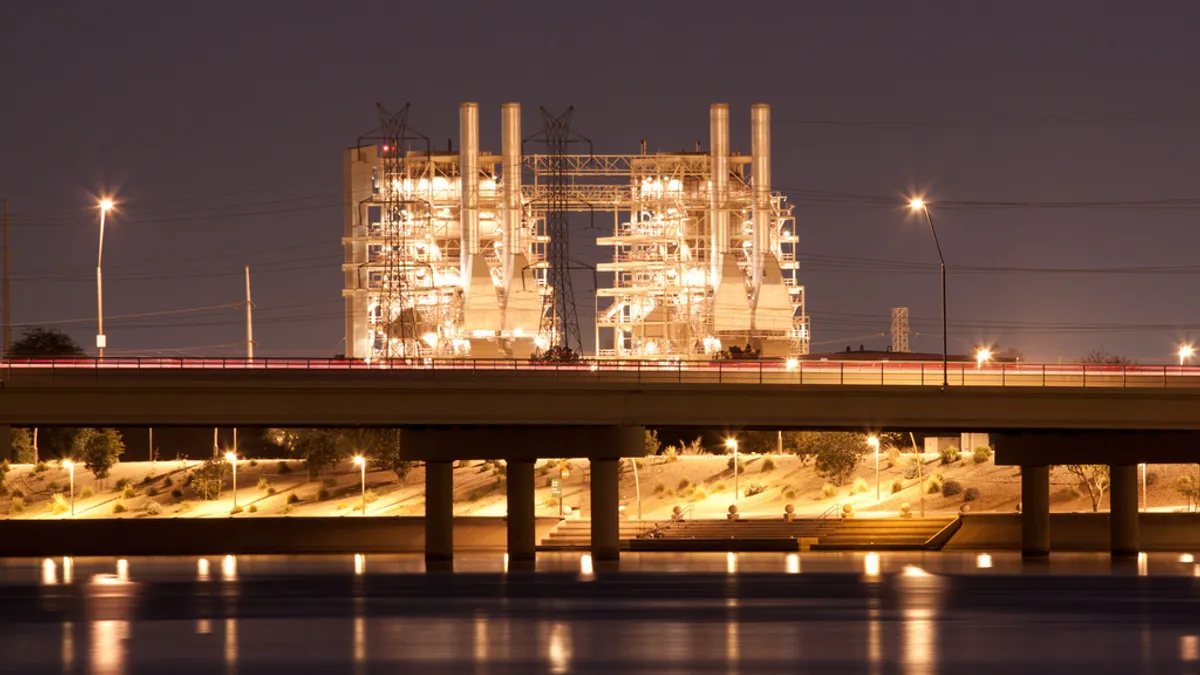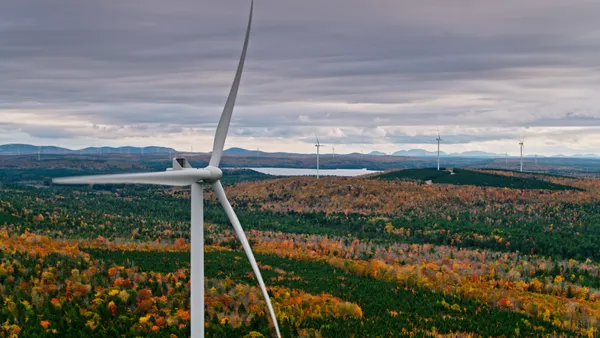Dive Brief:
- The Ohio Power Siting Board (OPSB) last week approved the $1.1 billion, 1,100-MW gas-fired South Field Energy plant in Columbiana County, planned to be in service in 2020, the Columbus Business Journal reports.
- Private power developers are flooding into Ohio as the state looks to replace aging coal-fired plants being pulled offline. The news outlet reports there are a half dozen power projects under development, including four in constriction, and none are backed by the traditional investor-owned utilities.
- The South Field project is owned by Boston-based Advanced Power, which has more than 5,000 MW of global projects under development now.
Dive Insight:
Ohio utilities have struggled with the future of older coal generation, attempting to win ratepayer support, considering re-regulation of the state's market and the sale of their plants. The utilities, including American Electric Power, FirstEergy and Dayton Power & Light, argue keeping the plants online is essential to the state's customers.
But as the Columbus Business Journal points out, that argument is losing some luster as more efficient combined-cycle plants more forward in the state.
Advanced Power's South Field Energy plant is is one of a pair the company has proposed in the Ohio region. In conjunction with Carroll County Energy, the company says the projects represent a total investment of more than $2 billion.
South Field will will be located on 150 acres in Yellow Creek Township; the OPSB's approval also included a new 3.9-mile 345 kV transmission line and electrical switchyard. The company wants to begin construction in January.
AEP Ohio appears to be the primary proponent of re-regulation, but the utility will face an uphill battle and is hoping to determine by early next year whether a bid to restructure state's markets could be feasible.So far, FirstEnergy's focus has been on its own generation plans, though the utility supports plans to restructure the markets.
Both AEP and FirstEnergy won support for struggling coal and nuclear generation earlier this year, but federal regulators subsequently blocked the deals, leading to talk of plant sales and re-regulation. Their coal fleets are under pressure from tighter environmental regulations and low gas prices.














